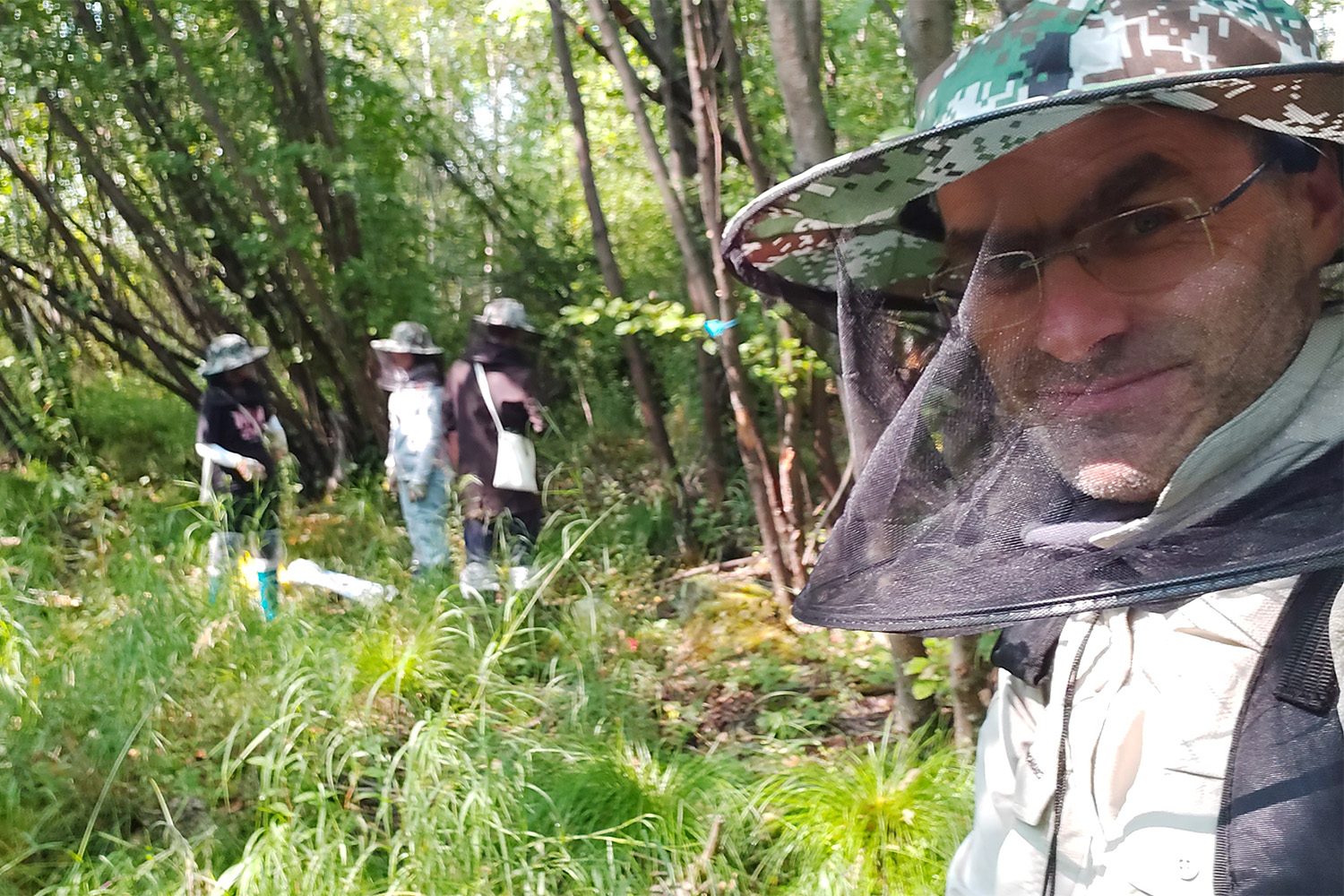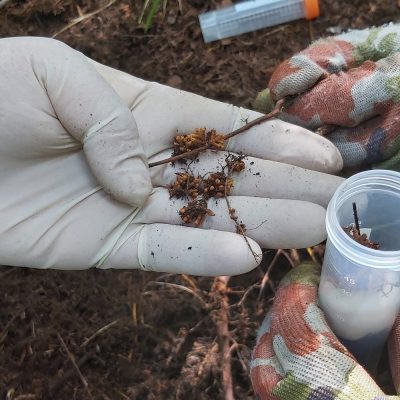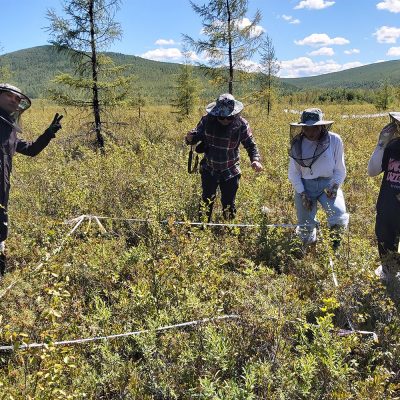Climate crisis up close A travel report from China
In August 2023, Professor Robert Hänsch from the Institute of Plant Biology travelled to China: As part of his visiting professorship at the Center of Molecular Ecophysiology (CMEP) at Southwest University in Chongqing (China), he was on a collecting expedition in a small village near MoHe, the northernmost city in China. This town gained new notoriety in January this year with a new cold record of minus 53 degrees Celsius. Bordering Russia to the north, this area is known for the occurrence of permafrost, i.e. ground that is frozen all year round. But Professor Hänsch and his colleagues on site experienced some big surprises.

Mosquito and sun protection had top priority. Photo credit: Robert Hänsch/TU Braunschweig
Together with his colleague Professor Bin Hu, a PhD student and two Master’s students, the team had set themselves the task of investigating the effects of global warming on vegetation in the field. Equipped with 500 ml of insect repellent, mosquito-proof clothing and a hat with mosquito gauze, they arrived in the study area. The first shock: plus 30 degrees Celsius in the shade, 45 degrees Celsius in the sun. The second shock: the great drought that is unprecedented even for the locals.
A drone flight provided a bird’s eye view of the vegetation. Then the painstaking work on the ground began. It was possible to harvest the plant samples within a few days. The team also mastered the identification of the present species and the analysis of the growth behaviour without additional help. The focus was on a closely related species of alder that also occurs in Germany—a tree species that can fix atmospheric nitrogen in symbiosis with very special nodule bacteria. Therefore, corresponding root samples with these formed nodules were also harvested.
- The collected plant samples are packaged and catalogued. Photo credit: Robert Hänsch/TU Braunschweig
- Root nodules of alder – a symbiosis of plant and bacteria that enables fixation of air N2. Photo credit: Robert Hänsch/TU Braunschweig
The most important task was the last one—the examination of the soil. Besides taking samples for later laboratory analysis at the university in Chongqing, the scientists were particularly interested in analysing the permafrost. For this purpose, additional workers were organised to dig down to the permafrost with appropriate tools. This was successful in most places, although to everyone’s astonishment the depth of the digging was already considerable in some places. At one point, however, the attempt was aborted without success at a depth of more than one metre. This confirms what has already been described elsewhere—the permafrost is thawing massively and releasing considerable amounts of CO2 and methane, both extremely climate-damaging gases. This can then further promote global warming—a vicious circle.
The more than 1000 plant and more than 100 soil samples have arrived in CMEP and will be analysed there in the coming weeks and months. Robert Hänsch is now back from China after a busy time with many great impressions. Besides the unique landscape, he is especially overwhelmed by the friendliness of the people. There were also numerous very remarkable circumstances that gave him food for thought: The extremely high level of digitalisation, even in the rural area, and the great punctuality of the train service—the night train to and from Harbin arrived at its destination after 1200 kilometres, exactly on the minute, and this even on a single-track line and with an old-looking diesel locomotive.
- The evening meal was always a surprise – in this case dried and prepared fish. There were always a lot of local and fresh vegetables. Photo credit: Robert Hänsch/TU Braunschweig
- Vegetation biology recording at the site. Photo credit: Robert Hänsch/TU Braunschweig
Professor Hänsch concludes: Even if there are currently numerous and well-known tensions in major politics, the global climate crisis can only be solved together, he pleads. Here, scientists in particular must find ways of good and fair cooperation.




